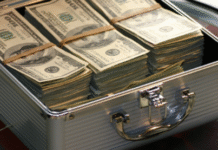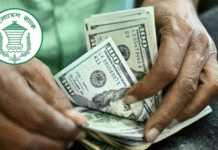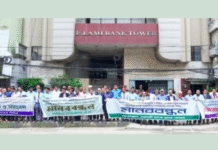
Global stock markets saw almost a V-shaped recovery during the coronavirus pandemic. But Bangladesh’s stock market is an exception.

A V-shaped recovery refers to a sharp fall in economic activity, which is then matched by an abrupt rebound.
In fact, Bangladesh’s stock market followed suit when the global stocks dropped. But it has refused to make a turnaround when the global stocks rose.
The local market did not rebound even after the government rolled out a massive stimulus package amounting to Tk 103,117 crore, which is 3.7 per cent of the GDP, to pull the economy out of the wreckage.
At the heart of the problems are inadequate measures on monetary expansion, confidence crisis emanating from the shutdown of trading for the pandemic, the setting up of floor price and failure to manage the contagion.
Inadequate monetary expansion is the prime reason, Islam said.
The stock markets around the world started to plunge from late February when the virus began to spread globally. The fall lasted until late March.
India’s BSE Sensex dropped 35 per cent to 25,981 points, the US’s S&P 500 index slumped 32.96 per cent to 3,337 and Eurozone’s Euro Stoxx 50 fell 37 per cent to 2,385 during the time. Similarly, DSEX, the benchmark index of the Dhaka Stock Exchange (DSE), gave up 16 per cent to settle at 3,974.
In late March, countries started to announce special packages to revive their pandemic-hit economies.
The US Senate passed a $2 trillion coronavirus aid bill, the largest economic stimulus in the US history, on March 26. Almost all the countries announced packages prompting stocks globally to bounce back.

Subsequently, the S&P 500 index rebounded 37 per cent to 3,066 on Tuesday from late March. During the same period, the Euro Stoxx 50 recovered 35 per cent to 3,229 and the Sensex regained 29 per cent to 33,605.
DSEX, however, dropped about 1 per cent to 3,960.
“It is necessary to reduce the interest rate in the banking sector and the yield on government bonds. Otherwise, banks would prefer the bonds to lending money to the private sector and investing in stocks in this tough time,” Islam said.
The Federal Reserve has already announced its intent to purchase corporate bonds along with Treasury bonds to ease the monetary supply.
In India, the yield on government bonds is about 3 per cent, whereas it is upwards of 7 per cent in Bangladesh though the rate of inflation is almost the same in the two countries, the asset manager said.
“Despite the Bangladesh Bank’s step to ease monetary supply, the country needs more policy support to ensure monetary expansion because refinance schemes are not adequate to tackle such an unprecedented crisis,” he said.
The central bank has reduced banks’ cash reserve ratio, an expansionary tool, by 100 basis points to 4 per cent and repurchase agreement rate (known as the repo rate) by 50 basis points to 5.25 per cent to make funds cheaper for banks.
Another reason behind the bearish market in Bangladesh is most of the investors are momentum-driven, so the index suffers when it needs to rise or fall, Islam added.
Momentum investors are those who try to gain when the market is rising and rush to sell when the market stays low.
Investors think that Bangladesh economy would be in a bad shape though the government has projected an 8.2 per cent GDP growth for next fiscal year, said AB Mirza Azizul Islam, a former chairman of the Bangladesh Securities and Exchange Commission (BSEC).
“They fear the listed companies would perform badly. So, many of them are not buying shares.”
The cases of coronavirus are declining in many other countries whereas it is rising in Bangladesh and this is another reason for the pessimism, said the former caretaker government adviser.
The suspension of trading for more than two months and the policy intervention to stop the fall of the index were a massive blow, said a merchant banker preferring anonymity.
Due to the traditional method still used in carrying out trade, both the DSE and the Chittagong Stock Exchange had to stay shut from March 26 to May 30 during the countrywide shutdown put in place to contain the contagion.
On March 19, the BSEC ordered the bourses to set the floor prices of stocks based on the average prices of preceding five days, to prevent the securities from sinking further.
Such interventions spooked the confidence of institutional and foreign investors and the BSEC has already realised it. But the regulator is still waiting to scrap the floor price.
The global stock markets saw some ups and downs in the last six months and they are bouncing back now. This is normal because if the market falls, it would rise fast, the merchant banker said.
“The BSEC had tried to stop the plunge. The regulator now fears the market may fall further if the floor price is lifted. Such policy interventions have impacted the confidence and the confidence would not come back all of a sudden.”









